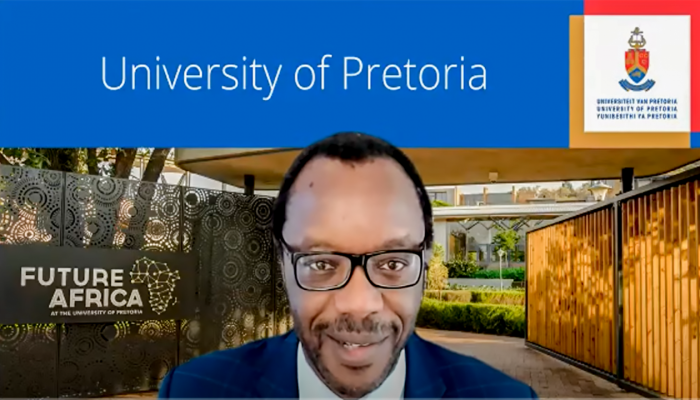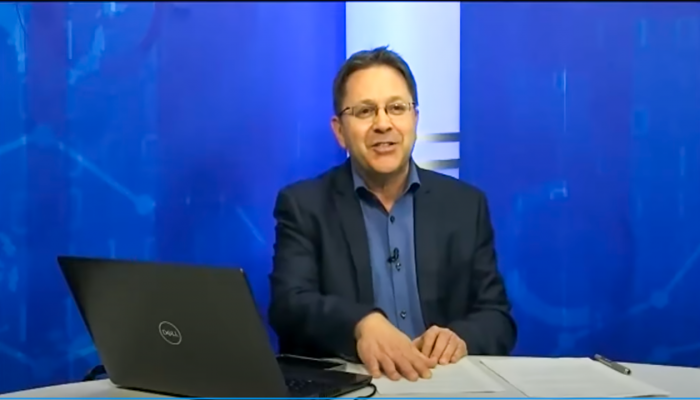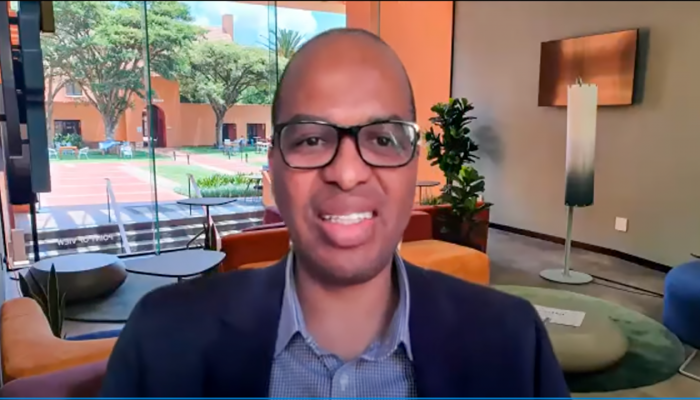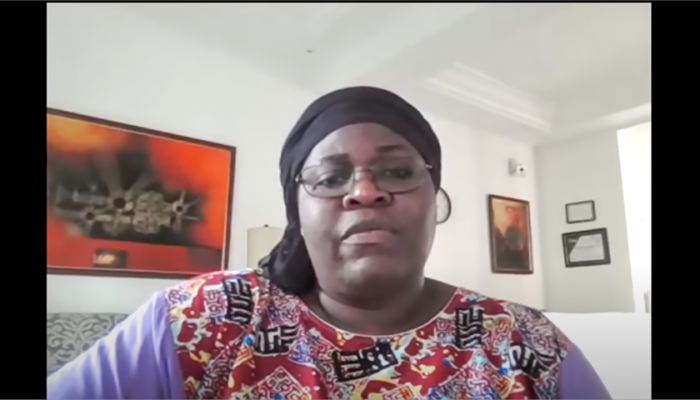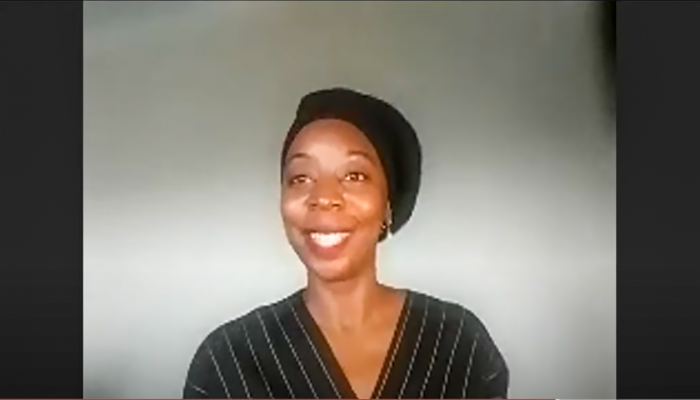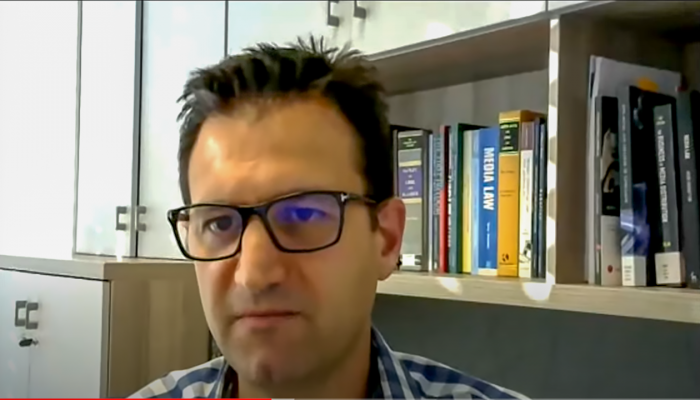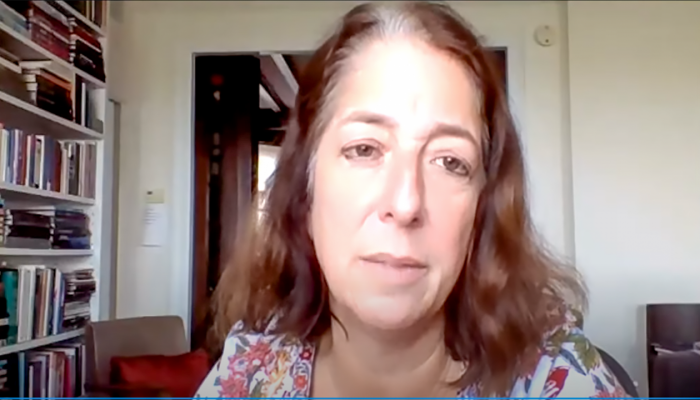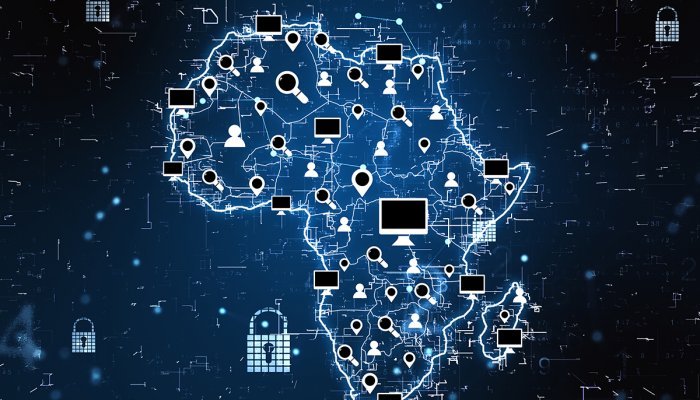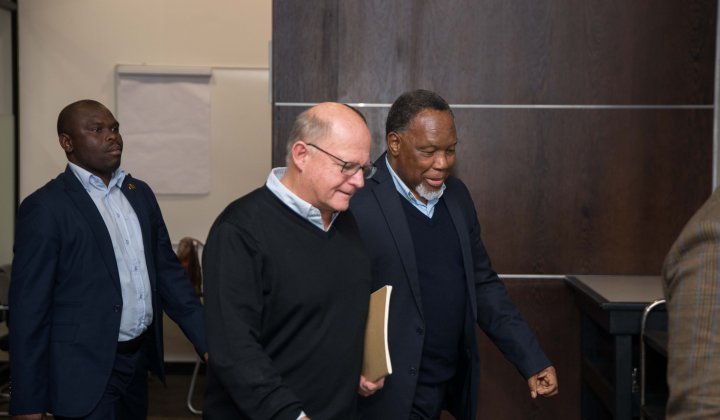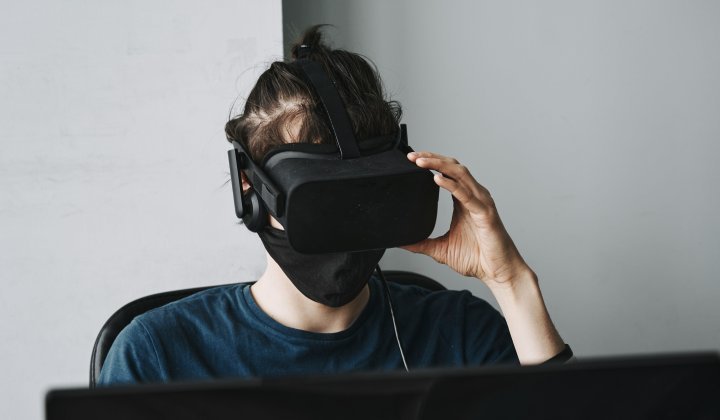This was apparent during the GIBS Media Leadership Think Tank launch in mid-September 2021, where much of the discussion centred on technology companies – now considered media players – and their role in supporting or undermining democracy.
“We face multiple, continuous disruptions, and not just because of Covid-19,” said Professor Tawana Kupe, vice-chancellor and principal of the University of Pretoria, during his opening address at the launch event. “Covid-19 is just the latest disrupter in a world and societies marred by political, economic, media, social and cultural institutions that no longer fulfil the potential of the large majority of people across the world.”
Kupe highlighted the tension between the positive potential of freely available information in supporting democracy and the equal but negative potential of new media to enable the spread of misinformation. “This is the hallmark of our disrupted world and can wreak further havoc on a world already in crisis,” he said.
The GIBS Media Leadership Think Tank aims to deal with the pressing issues facing the media and audio-visual industries to be a positive force in advancing the fourth estate responsibly. It will do this through generating research, debate and solutions for business, civil society, and government policy in the broad media space.
Dr. Morris Mthombeni, GIBS interim dean, noted that the Think Tank was an important initiative in the fulfilment of GIBS’ commitments to Sustainable Development Goal (SDG) 16 (specifically target 10) – ensuring public access to information and protection of fundamental freedoms, which include the right to freedom of opinion and expression.
“We aspire to work with our fellow faculties in other parts of the University of Pretoria, but also to enter into partnerships with other universities, institutions and practitioners, to ensure that we bring the best scholarship and the best media leadership thinking to bear to ensure that we contribute to a culture of evidence-based journalism, unconstrained by economic interests.”
GIBS has previously developed media partnerships through the Bloomberg Foundation, which saw the school becoming one of several on the African continent to join the Bloomberg Media Initiative Africa.
“The GIBS Media Leadership Think Tank is part of that evolution of what we're going to do in this space, to ensure that we contribute to media freedom and effective access to strong institutions, as a consequence of protecting the fundamental freedoms enshrined in SDG 16,” said Mthombeni. “The GIBS Media Leadership Think Tank joins others that we have at GIBS, such as the Responsible Finance Think Tank, the Centre for Business Ethics, the Centre for Leadership and Dialogue, the Centre for African Management and Markets, and the Centre for Entrepreneurship at the University of Pretoria, of which we are part.”
The Think Tank will be headed by Michael Markovitz, currently a non-executive director on the board of the SABC with over two decades of experience as an activist, consultant, and business executive in the media and entertainment industries.
Markovitz has played various senior advisory roles and was the head of the Expert Reference Panel advising the government on the audio and audio-visual services policy review. He also worked as a senior adviser at ICASA and played a part in drafting South Africa's new broadcasting legislation in 1993.
“I'm really excited about the opportunity to grow this as an independent research and advocacy platform,” he said. “I think there are a lot of pressing societal issues that rely on the media getting its act together.”
He expressed his appreciation for the strong support from GIBS. “This comes at a time when the media is confronted by a perfect storm of misinformation and disinformation, challenges to its sustainability and the extra-territorial power of social media platforms.”
Powerful perspectives from across the globe
Speakers at the launch event included voices from across the continent and the globe. These included Fatou Jagne Senghore, Gambian-Senegalese human rights activist, women's rights activist and lawyer; Professor Dario Milo, Webber Wentzel partner and globally recognised media lawyer; Juliet Nafuka, digital rights researcher based at CIPESA and the author of the Uganda Digital Rights Landscape Report; and Dr. Anya Schiffrin, director of technology, media and communications at Columbia University’s School of International and Public Affairs and editor of the recently-published Media Capture: How Money, Digital Platforms, and Governments Control the News.
Topics discussed ranged from former US president Trump’s de-platforming to incitement on social media networks and widespread internet shutdowns across Africa and other parts of the world.
Media and politics interplay
Schiffrin spoke about how the rise of online misinformation and disinformation affects political events around the world. This threatens democracy by aggravating feelings of mistrust in institutions, inciting people to violence, promoting hatred of migrants and minorities, and allowing conspiracy theories to circulate. She gave an overview of the ‘solutions landscape’, which she’s been researching, explaining various solutions developed in the wake of the global panic triggered by Trump’s election and Brexit.
“There was a period of reflection and studying, and people like Claire Wardle came up with a taxonomy of what exactly is misinformation and disinformation and how is it different from satire. Then there was a whole lot of studying of how it spreads.”
Following on from this was digesting and understanding, and then, Schiffrin explained, “there was a feeling that we need to do something”.
From this, solutions emerged, based largely on people’s varying ideologies or agendas. Her research focused on essentially dividing solutions into two large buckets: demand side and supply side. “Solutions that address demand are things like fact-checking, media literacy and building trust in journalism,” she said.
Supply-side solutions focus on transparency, holding people to account, attempts to drown out misinformation or disinformation with quality content, and de-platforming sources that spread fake news (such as Facebook removing Trump from its platform).
Schiffrin believes that policy will play an important role and laments how large tech companies in the US tend to hide behind the First Amendment (which protects freedom of speech and the press) when it comes to content regulation. “Basically, our total free market, libertarian craziness has now been dumped on the rest of the world to deal with and clean up,” she said. However, she notes there is an appetite in the US for competition law and potentially breaking up technology giants.
Milo pointed out that one of the burning legal and policy issues is whether these entities should be treated simply as tech companies or as “some sort of version of a media company where there might be far more onerous requirements and demands made of them.”
Implications of internet shutdowns
Nanfuka spoke about network and internet shutdowns and their cost for the economies and people within the countries where these shutdowns occur (often during political elections).
For example, she said, there were “internet refugee camps” formed in Cameroon during the 2017 elections when the country’s Anglophone regions were denied internet access in the wake of protests against the French-dominated government. “People had to travel long distances to remain online, just to communicate with each other. Those costs are never really considered,” she said.
In Uganda, where she is based, Facebook was shut down during the elections earlier in 2021 and remains offline to most Ugandans to date unless they access it through a virtual private network (VPN).
She questioned what telecoms companies are doing about these sorts of shutdowns. While they have previously tended to simply follow instructions to disrupt the internet rather than taking a stand against it, she said more are publicly announcing that they have been instructed to shut down the internet by specific individuals. They are also starting to require legal backing for shutdown instructions. “We're seeing a slow shift in how telcos are responding to the plight of citizens, and we are really excited about that because we're seeing them trying to comply with the UN business and human rights principles, which are calling for more transparency.”
Strengthening continental media frameworks
Senghore reinforced that the legal basis for protecting freedom of expression is anchored in the African Commission on Human and People’s Rights. However, many governments have used the fact that restrictions can be made within national law to try to suppress and legitimise the restriction of this freedom.
She noted that media practitioners, the African Union and other stakeholders have been working to address issues of media freedom since the early 1990s. This has resulted in the adoption of the Windhoek Declaration for the Development of a Free, Independent and Pluralistic Press in 1991, the African Charter of Broadcasting in 2001, the Declaration of Principles of Freedom of Expression and Access to Information in Africa in 2002, the Special Rapporteur on Freedom of Expression and Access to Information in 2005, among others. There have been additional declarations and revisions as required, such as digital rights and access to information.
Senghore said it was important to strengthen jurisprudence. Unfortunately, the independence of regional and national courts has often proved problematic, and the African Commission on Human and People’s Rights remains a quasi-judicial body that doesn't have enforcement powers. More work needs to be done to improve media jurisprudence, specifically on the continent.
Collaboration and advocacy
While the launch event was a good “taster” of the media issues at play in Africa, many others require scrutiny. These include challenges around sustainability, regulation, understanding the broader ‘attention economy’, transparency and accountability, among others.
The GIBS Media Leadership Think Tank will investigate these pressing societal and business challenges, drawing on experts from across Africa and globally to generate research, debate, and innovative solutions for businesses, civil society, and government policy.
…the rise of online misinformation and disinformation affects political events around the world…



